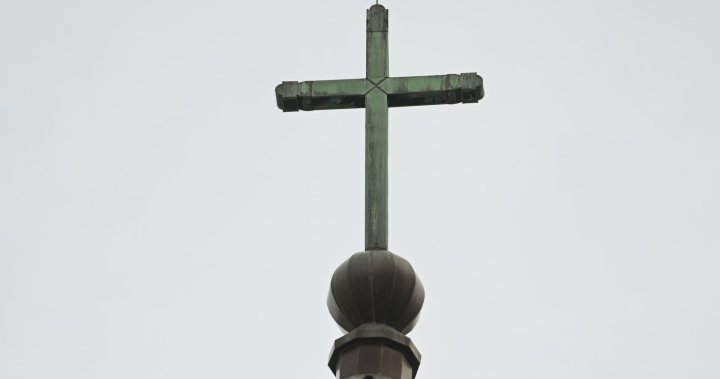Canada
Canadian bishop accused of sex abuse in Quebec class-action suit resigns

Pope Francis Accepts Resignation of Canadian Bishop Amidst Allegations
Introduction to the Resignation
In a significant development within the Roman Catholic Church, Pope Francis has accepted the resignation of Bishop Jean-Pierre Blais, who served as the bishop of Baie-Comeau in the predominantly French-speaking province of Quebec, Canada. The resignation of the 75-year-old bishop was tendered in accordance with the church’s policy that requires bishops to submit their resignation upon reaching the age of 75. The pope has named Reverend Pierre Charland, a 62-year-old leading member of Canada’s Roman Catholic Franciscan order, as his successor. While the resignation was not explicitly linked to any allegations, it comes at a time when Bishop Blais has been named in a class-action lawsuit against the Archdiocese of Quebec, alleging sexual assault.
The Allegations Against Bishop Blais
Bishop Jean-Pierre Blais has been mentioned in a list of alleged sexual predators included in a class-action lawsuit filed by victims against the Archdiocese of Quebec. The lawsuit, which is part of a broader legal action against the church, accuses multiple individuals within the church of sexual misconduct. However, Bishop Blais has denied any wrongdoing, and the Diocese of Baie-Comeau has emphasized that his resignation is not directly connected to these allegations. The diocese has reiterated the church’s standard policy of requesting resignation from bishops upon reaching the age of 75, stating that this decision is a routine part of church governance.
The Process of Resignation and Appointment
The Vatican has clarified that the resignation of Bishop Blais was accepted by Pope Francis after careful consideration of all circumstances. The pope’s decision is in line with the church’s canonical regulations, which mandate that bishops submit their resignation at the age of 75. This process is intended to ensure the continuity of leadership within the church while allowing for the infusion of new perspectives and energies. The appointment of Reverend Pierre Charland as the new bishop of Baie-Comeau reflects the church’s commitment to maintaining strong leadership in its dioceses. Reverend Charland, who is widely respected within the Franciscan order, is expected to bring his experience and dedication to the new role.
Response from the Diocese of Baie-Comeau
The Diocese of Baie-Comeau has issued a statement to address the resignation of Bishop Blais and the appointment of his successor. The diocese has been clear in stating that the resignation is not linked to the allegations against Bishop Blais, emphasizing that the decision is purely in accordance with the church’s age-related retirement policy. The diocese has also made it clear that Bishop Blais will not be speaking to the media regarding the allegations or his resignation. This approach reflects the church’s efforts to handle such sensitive matters with discretion and to avoid unnecessary speculation or public debate.
The Broader Context of the Class-Action Lawsuit
The class-action lawsuit against the Archdiocese of Quebec is part of a larger pattern of legal actions being taken against the Roman Catholic Church worldwide. These lawsuits often involve allegations of sexual abuse by clergy members and have led to widespread calls for greater accountability and transparency within the church. In this case, the inclusion of Bishop Blais’ name in the list of alleged perpetrators has raised questions about his involvement, despite his denial of any wrongdoing. The lawsuit underscores the ongoing challenges faced by the church in addressing historical and contemporary issues of sexual abuse.
Conclusion and Implications for the Church
The resignation of Bishop Blais and the appointment of Reverend Pierre Charland mark a significant moment for the Diocese of Baie-Comeau and the broader Roman Catholic Church. While the resignation is framed as a routine step in church governance, it takes place against the backdrop of serious allegations and ongoing legal proceedings. The church’s handling of such cases is under close scrutiny, and the decision to accept Bishop Blais’ resignation highlights the delicate balance between adhering to established policies and addressing public concerns. As the church continues to navigate these complex issues, the appointment of new leadership offers an opportunity for renewal and reflection on the path forward.











